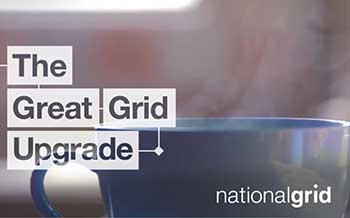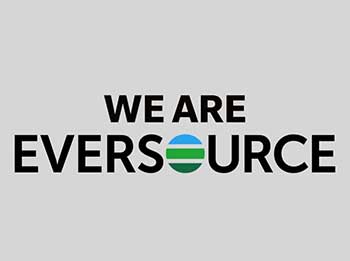When it comes to choosing an electricity provider in Massachusetts, most homeowners have two main options – National Grid or Eversource. These two companies provide power to the majority of the state.
But how do you decide which one is right for your home? In this comprehensive guide, we’ll compare National Grid and Eversource on reliability, rates, customer service, and more to help you make an informed decision.
A Brief Comparison Table
| Category | National Grid | Eversource |
| Service Territory | Southeastern MA including Cape Cod, Boston, Worcester | Central and Western MA including Springfield and Westfield |
| Average Electricity Rates | 22.4 – 23.3 cents per kWh | 20.1 – 21.1 cents per kWh |
| Power Outages | More frequent in Greater Boston area | More frequent in rural Western MA |
| Restoration Time | Comparable between the two | Comparable between the two |
| Billing and Account Management | More detailed bills, better online tools | History of inaccurate billing, lacks bill transparency |
| Customer Service Reputation | Better – shorter call waits, proactive communication | Worse – long call waits, poor communication |
| Rate Plan Options | Standard, Time of Use, Peak Savings | Standard, Time of Use, Peak Savings |
| Green Energy Options | Community solar, renewable credits, carbon offsets | Community solar, renewable credits, carbon offsets |
Overview Of National Grid And Eversource
First, a quick rundown on these two major electricity providers:

National Grid is the largest distributor of electricity in Massachusetts. They deliver electricity to approximately 1.3 million customers in the eastern and southeastern parts of the state. Cities and towns serviced by National Grid include Boston, Worcester, Cape Cod, Martha’s Vineyard, and more.
Eversource (formerly known as NStar) is the other big provider in Massachusetts, serving approximately 1.4 million electric customers in the central and western parts of the state. Major areas covered include Springfield, Cambridge, Framingham, and communities along the Connecticut border.
Both companies purchase electricity wholesale from power generators and manage the distribution lines and infrastructure that brings power to homes and businesses.
While you have a choice between National Grid or Eversource depending on your location, the companies themselves are regulated monopolies with non-overlapping service territories.
Also Read: Is Direct Energy Better Than ComEd?
Detail Comparison Of National Grid And Eversource
- Reliability and Outages
Reliability is top of mind for most electricity customers. Power outages can range from annoying to downright dangerous, especially during extreme weather. So how do National Grid and Eversource compare when it comes to reliable service?
Overall, both companies deliver electricity with similar reliability across the state. However, there are some regional differences.

Eversource customers in western Massachusetts tend to experience slightly more frequent outages compared to National Grid’s territory. This is due to the more rural nature and overhead utility lines susceptible to storm damage.
Conversely, National Grid’s urban service area comes with its own reliability challenges, like overwhelmed transformers and underground equipment failures. Their metrics fall short of statewide averages inGreater Boston.
When major outages do occur, restoration times are comparable for Eversource and National Grid. Location is a bigger factor, as suburban and rural areas take longer to repair than compact cities. Proactive equipment upgrades by both providers have improved reliability over the past decade.
- Electricity Rates and Pricing Plans
One of the biggest factors for customers choosing an electricity provider is the rates and pricing options available. How do Eversource and National Grid compare on electricity costs for Massachusetts households?
Across the board, Eversource offers slightly lower average electricity rates than National Grid. According to the most recent data from the Department of Public Utilities, average residential rates for Eversource customers were:
- 21.1 cents per kWh for Western MA
- 20.1 cents per kWh for Eastern MA
By comparison, the average rates for National Grid residential customers were:
- 22.4 cents per kWh for Western MA
- 23.3 cents per kWh for Southeastern MA
However, actual rates paid can vary widely based on your location and usage. The companies offer customized pricing plans to help customers control costs and budget for electricity expenses.
Standard Fixed Rate
This basic plan provides a fixed per kWh rate that does not change from month to month. Easy to understand, but you miss out on savings if market prices decline.
Time of Use Rate
With this plan, rates fluctuate based on the time of day and season when electricity is used. Costs are lower overnight and higher during peak afternoon hours. Best for households with flexible usage.
Peak Energy Savings
Get credits for reducing electricity use on certain high-demand days. Requires a smart meter and being active about conserving when notified.
Green energy options like community solar, renewable credits, and carbon offsets are also available from both companies. Overall, shopping around for the right rate plan that matches your usage can make a bigger difference than choosing one company over the other.
Also Read: Choose Between TXU Energy And Ambit Energy.
- Billing and Account Management
Managing your electric account and bills is an important consideration as a customer. In general, National Grid provides better options for account management and billing transparency.
Eversource has faced complaints over years of inaccurate bills and poor customer service. Unexpected spikes in bills make budgeting difficult. Bills do not provide clear breakdowns on rates, fees, and charges. Many customers report long hold times trying to get billing issues resolved.
National Grid bills are more detailed in explaining monthly charges. They offer a wide range of online account tools for tracking usage and comparing rate plans. Customized usage alerts can help prevent sticker shock.
National Grid also communicates proactively about estimated bill impacts from major events like storms. Their customer service reputation is better overall.
That being said, both companies offer the flexibility of level billing plans to spread costs evenly throughout the year. Online or auto bill pay can also simplify payment.
- Customer Service Reputation
As you weigh National Grid Vs. Eversource for your electricity needs, it helps to compare their customer service track records.
Eversource has frequently ranked near the bottom for customer satisfaction among U.S. utility companies. Complaints typically involve inaccurate billing, long call waiting times, and poor communication during outages.
While not perfect, National Grid tends to fare better in customer service surveys, both regionally and nationally. Their call wait times are shorter on average and outages are communicated about more proactively via text and email alerts.
If you value quality customer service, National Grid appears to be the superior choice over Eversource at this time. However, service quality can fluctuate for both providers depending on weather events impacting call volumes.
Also Read: Comparison Between DTE Energy And Consumers Energy.
Frequently Asked Questions (FAQ)
For most Eversource customers, National Grid is the alternative electricity provider, and vice versa. A small portion of Western MA is also served by Unitil.
The major electricity providers in MA are Eversource (formerly NStar) in the central and eastern part of the state and National Grid covering the southeast. Several municipal light plants serve small pockets of customers as well.
Unfortunately, no. Electricity providers operate as regional monopolies in MA, so customers have no choice between Eversource Vs. National Grid. You simply receive service from whichever company operates in your area.
Eversource was previously known as NStar, and merged with Northeast Utilities in 2012 to form the current company. The name was changed to Eversource Energy in 2015. Many Massachusetts customers still refer to it as NStar.
Also watch this to know more about National Grid!
The Verdict
At the end of the day, most Massachusetts residents don’t get to choose between National Grid and Eversource. Your location dictates which company distributes power in your area. But understanding their differences can set reasonable expectations.
For those moving to a new home, weigh the companies’ track records on reliability, rates, and service. This background will tell you what to expect. Be sure to shop around for the right rate plan with either provider to keep costs low. Overall, both National Grid and Eversource offer quality electric service throughout Massachusetts. Knowing their strengths and weaknesses simply allows you to be an informed customer and plan accordingly by choosing the right rate options.
